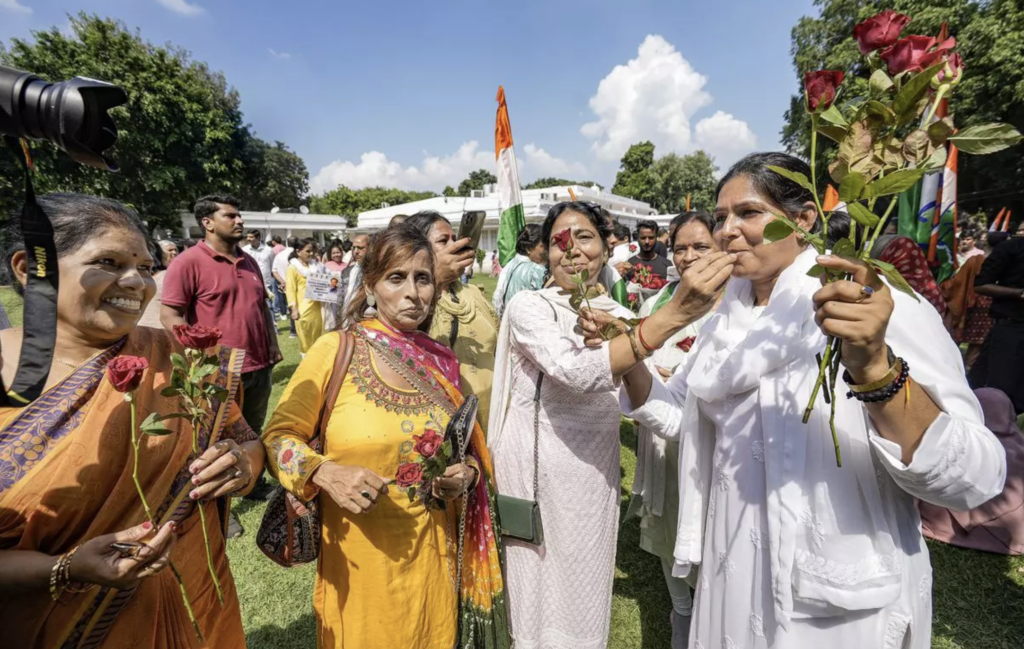In a decision, the Lok Sabha has successfully approved the Constitution (One Hundred and Twenty-eight Amendment) Bill 2023 guaranteeing one-third representation, for women in the Lok Sabha state legislatures and the Delhi legislative assembly. This significant legislation, brought forward by Union Law Minister Arjun Ram Meghwal garnered backing from 454 Members of Parliament with 2 dissenting votes.

How Women’s Reservation Bill Would Be a Great Initiative Ever Taken in the Recent Lok Sabha Session? Explained!
The bill introduces a provision that enforces a 33 percent reservation for women in these bodies. It will be implemented after a delimitation process following the census conducted post-enactment. Union Home Minister Amit Shah remarked, “Following elections, we will soon proceed with the census and delimitation exercise. Subsequently, this House will comprise one woman.”
While opposition members also supported women reservation rights some expressed concerns about the implementation being deferred until after the census and delimitation exercise. Several urged for action. Requested separate reservations for women belonging to OBC and minority communities.
During discussions, on the matter Union Law Minister Arjun Ram Meghwal proposed amendments to clauses of the bill which were accepted by the House.
This historic development signifies an advancement, in the push for women reservation after a period of stagnation. The previous attempt, known as the Constitution (One Hundred and Eighth Amendment) Bill, 2008 expired when the 15th Lok Sabha (2009 14) dissolved. The 2008 bill aimed to modify provisions and included time-limited provisions for affirmative action.
In contrast, the 2023 bill proposes an amendment to Article 239AA ( provisions with respect to Delhi). Introduces three new articles; Articles 330A, 332A and 334A. The first two articles aim to ensure that women hold a representation of 33 percent in both Lok Sabha and state legislative assemblies. Notably, this bill enforces reservation post delimitation while maintaining the sunset clause and preserving existing provisions for the community.
This groundbreaking legislation is a stride towards achieving gender equality in the Indian landscape and signifies a positive shift towards increased female participation, in decision-making bodies.
